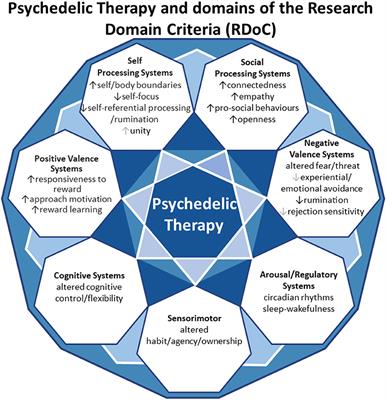With societal attitudes shifting and an increase in psychedelic research, more psychedelic substances are now available to researchers. With growing recognition from mainstream science and increasing support from the Food and Drug Administration (FDA), researchers are making great strides in understanding the therapeutic value of psychedelics.
In some instances, it may be possible for individuals to participate in psychedelic research.
Where are the psychedelic research centers located?
Current locations of psychedelic research centers include:
Read on to discover how some psychedelic research centers are working together and learn what they are uncovering about the impact psychedelics have on patients’ health.
According to research at the University of Alabama, the use of psychedelics remains controversial, but social attitudes and the conversation around the benefits of psychedelics has changed dramatically in recent years. Thanks to ongoing research, the last few years have shown remarkable breakthroughs regarding psychedelic substances and various health issues, both mental and physical.
Johns Hopkins Center for Psychedelic & Consciousness Research
Johns Hopkins was the first research center to get approval from the Federal Drug Administration (FDA) to investigate how psychedelics can help patients. Currently a leader in psychedelic research in the United States, Johns Hopkins continues to work to find out how psychedelics impact mood, brain function, cognition, and behavior. The Johns Hopkins Center for Psychedelic and Conscious Research is in Baltimore, Maryland. If you would like to support them with their research, you can contact them here.
Heffter Research Institute
The Heffter Research Institute helps to design and review studies on psilocybin at various research facilities in both the United States and Europe. Their research is based on the premise that psychedelics have untapped potential to help people with both medically and spiritually. The Heffter Research Institute explores how psychedelics can help those with psychiatric disorders without having to take prescription medication to manage their disorders.
Center for Psychedelic Therapies and Research
The Center for Psychedelic Therapies and Research is operated through the California Institute of Integral Studies (CIIS) is in San Francisco, California. The center has a goal of continuing to educate both professionals and the public about current ongoing research related to the medical and psychiatric use of psychedelics. For more information about the Center for Psychedelic Therapies and Research and to sign up for their contact and mailing list, you can contact them here.
Imperial College London Centre for Psychedelic Research
The Imperial College London Centre for Psychedelic Research is located in London, United Kingdom. It is currently running a clinical trial to develop a therapy using psilocybin for the treatment of depression. The center focuses on gathering evidence to support the use of psychedelics in therapies and to explore the nature of consciousness. For information on how to participate in research conducted by Imperial College London Centre for Psychedelic Research, you can reach out to the organization here.
Psychedelic Compounds Currently in Research
Overall, there are several different psychedelic compounds being researched for various reasons, including MDMA and psilocybin. (NB: MDMA is not scientifically classified as a psychedelic, but it is often included alongside psychedelics because of its empathogenic qualities and therapeutic potential.) Both substances have delivered promising results in research trials, and both are expected to achieve FDA approval for therapeutic uses.
Currently, clinical trials with MDMA and psilocybin show particular promise. With these substances, there is renewed hope for support for those who have post-traumatic stress disorder (PTSD) and treatment-resistant depression.
Psychedelics have been shown to help those with eating disorders, such as anorexia, as well as those who are facing end-of-life anxiety due to terminal cancer. Psychedelics show strong promise for the treatment of addictions, as well. Furthermore, the research gives hope to those who have family members or a family history of Alzheimer’s Disease.
To Conclude
There are psychedelic research centers all over the world. These centers are often supported by organizations and institutions such as universities, as well as private individuals. The collaborative efforts of researchers, coupled with the support of the FDA, has brought about a wave of promising clinical trials showing the benefits of psychedelics. Now that we have moved beyond repressive societal attitudes to psychedelics, the long-lasting potential of these substances continues to unfold.


